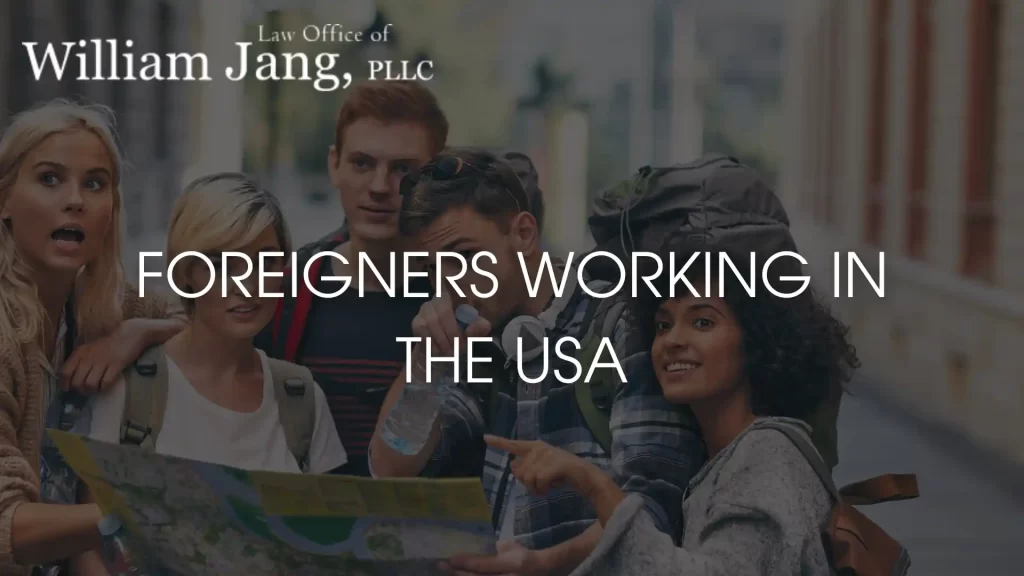
The United States allows thousands of foreign workers to enter the country every year to work in various industries and professions, particularly those suffering from chronic shortages of willing U.S. workers. Foreigners working in the United States have multiple programs that allow them to temporarily or permanently enter the U.S. for work. However, many of these programs limit the number of foreign workers entering the U.S. annually. As a result, obtaining employment in immigration often involves a complex and highly competitive process. Working with experienced legal counsel, like our firm, can give foreigners working in the USA the best chance of successfully navigating the immigrant visa application process.
Employment Opportunities for Foreigners
In many cases, a foreign worker applying for a visa to work in the U.S. must have an existing job offer before applying since the employer must “sponsor” the worker. Specific visa categories also require employers to apply for a labor certification from the U.S. Department of Labor. The labor certification confirms that the employer cannot find qualified U.S. workers for the position at the prevailing wage and that hiring the foreign worker will not negatively impact U.S. workers’ wages or working conditions.
Visa Options for Foreign Workers
Foreign workers seeking to live and work in the U.S. temporarily have several types of visas they may apply for. Some of the most prominent foreign worker visa programs in the U.S. include:
- H-1B: Granted to foreign workers in fields requiring specialized knowledge or training. A foreign worker can work in the U.S. on an H-1B visa for up to three years, with a one-time renewal option. The U.S. limits the number of new H-1B visas issued annually, reserving some for foreign workers with advanced degrees.
- H-2A: Issued to temporary/seasonal agricultural workers. The visa lasts up to one year, although foreign workers can apply for renewals for up to three consecutive years.
- H-2B: Temporary workers in nonagricultural occupations. This visa lasts up to one year, with workers eligible to apply for renewals for up to three consecutive years. The U.S. caps the number of H-2B visas issued each year.
Other temporary work visa categories under U.S. law include:
- H-3: Trainees in fields other than graduate medical or academic training not available in the foreign worker’s home country
- L: Intracompany transferees in executive or managerial roles or positions requiring specialized knowledge. Applicants must have worked for the employer outside the U.S. for at least one year within the past three years.
- O: Foreign workers with extraordinary ability or achievements in the arts (including film/television), sciences, education, business, or athletics
- P-1: Internationally recognized athletes or members of an entertainment/sports group
- P-2: Artists or entertainers in a reciprocal exchange program between U.S. and foreign organizations
- P-3: Cultural artists or entertainers
- Q-1: Workers in cultural exchange programs
Foreign workers who meet eligibility requirements might apply for a permanent visa that allows workers to reside and work in the U.S. indefinitely. Foreign workers seeking a permanent visa typically need extraordinary ability, advanced professional degrees, or experience in skilled positions. The U.S. also issues permanent worker visas to certain religious workers, employees of U.S. foreign service posts, retired employees of international organizations, and business investors who start a new enterprise employing at least ten full-time U.S. workers. Specifically, these visas cater to individuals in these categories, thus facilitating their long-term stay and contribution to the U.S. workforce.
Rights and Responsibilities of Foreign Workers in the U.S.A
 What are the rights and responsibilities of foreigners in the USA? Work visas give foreign workers the right to live and work in the U.S. Temporary worker visas impose various restrictions and responsibilities on foreign workers. Foreign workers must remain in sponsoring jobs for many visa categories to maintain lawful status. Temporary visas also require departure from the U.S. upon expiration unless renewed or adjusted to another visa or permanent residency.
What are the rights and responsibilities of foreigners in the USA? Work visas give foreign workers the right to live and work in the U.S. Temporary worker visas impose various restrictions and responsibilities on foreign workers. Foreign workers must remain in sponsoring jobs for many visa categories to maintain lawful status. Temporary visas also require departure from the U.S. upon expiration unless renewed or adjusted to another visa or permanent residency.
Foreign workers must avoid violating state or federal laws and generally must pay income tax on earnings from within the U.S. or related to a U.S. trade or business. To learn more about this, the experienced Austin immigration attorneys at Law Office of William Jang, PLLC can answer your questions.
Contact an Immigration Attorney Today
When a U.S. employer has offered you an employment position, you must obtain an immigration status or work authorization that allows you to live and work in the U.S. The employment immigration process in the U.S. involves complex immigration laws and procedures. Many foreign workers and employers must undergo a highly competitive process to secure visas or work authorization. Call us at (512) 323-2333 or contact us online today for an initial consultation to discuss your legal options and learn more about what to expect when applying for employment immigration.










